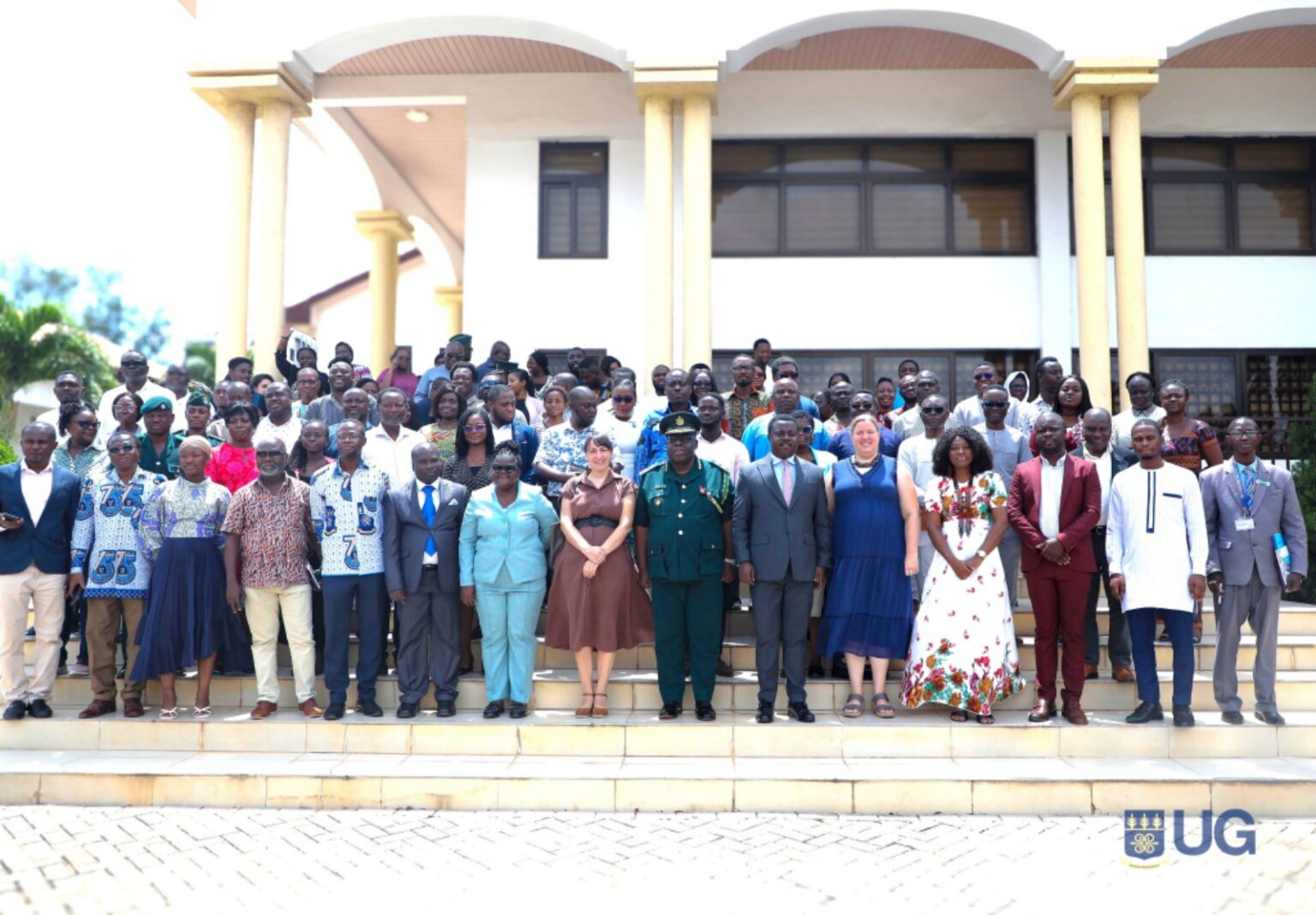The growing impacts of climate change and forced displacement are among the most pressing challenges facing our world today. These crises intersect and amplify each other, creating complex scenarios that deeply affect the lives of millions, especially in vulnerable regions. As communities contend with the effects of climate-driven displacement, socio-economic upheavals, and gender-based inequalities, the role of research becomes indispensable in guiding policymakers and development practitioners to make informed, impactful decisions. Addressing these issues requires a nuanced approach, informed by local contexts and strengthened by data-backed solutions.
In light of these urgent needs, the Centre for Migration Studies (CMS) at the University of Ghana recently organized a three-day conference under the theme “Addressing Intersecting Crises: Forced Displacement, Climate Change, and Gender in Social Transformation”. Held from October 23-25, 2024, the event brought together researchers, policymakers, and practitioners to explore how these intersecting challenges impact Ghana and beyond. Through research presentations and policy dialogues, the conference provided a platform to discuss evidence-based strategies to build resilience and promote social transformation in affected communities.
Following the conclusion of this conference, we take a closer look at the practical implications of its outcomes, focusing on how research initiatives like the REACH-STR project are paving the way for climate resilience, sustainable development, and gender equity across Ghana’s vulnerable communities.
Building Community Resilience through Research
One of the most tangible outcomes from the conference was the emphasis on translating research findings into actionable change at the community level. Through initiatives like the Resilience Against Climate Change-Social Transformation Research and Policy Advocacy (REACH-STR) project, funded by the EU under the Ghana Agriculture Programme, researchers are helping communities in Ghana’s Savannah Ecological Zone to adapt to climate pressures. Through its targeted efforts to promote sustainable agriculture, water management, and soil fertility practices, REACH-STR has contributed to mitigating the environmental and economic impacts of climate change on rural livelihoods.
The REACH-STR project has demonstrated that climate adaptation at the community level is not merely about survival, it’s about empowering individuals with knowledge and tools to thrive under changing conditions. In areas prone to extreme weather events, local farmers, women, and youth have been introduced to climate-smart practices that improve crop resilience and economic stability. These findings, shared widely during the conference, underscore the need for similar community-centered projects that equip vulnerable populations with sustainable solutions to adapt to ongoing environmental shifts.
Informing Government Policy with Research
At the conference opening, Hon. Rev. John Ntim-Fordjour, Deputy Minister for Education, commended the Centre for Migration Studies (CMS) for advancing crucial research that directly informs Ghana’s policies on forced displacement and climate resilience. He highlighted the Centre’s role in providing actionable insights through collaborations with the EU and IDRC, stating, “The Centre’s work, supported by the EU and IDRC, is critical in addressing the intersecting crises of displacement and climate change.”
Hon. Ntim-Fordjour underscored that evidence-based research equips the government to develop more effective, resilient policies, especially for communities most affected by climate impacts and displacement. He expressed gratitude to CMS for their dedication to producing impactful research, which, he said, is “essential for building a future where no one is left behind.”
Gendered Perspectives on Displacement and Climate Change
Another major focus of the conference was addressing the gendered impact of forced displacement and climate change. Women and girls often bear the brunt of climate-related crises, facing additional vulnerabilities related to displacement, resource scarcity, and access to opportunities.
In his remarks, Deputy Comptroller General of the Ghana Immigration Service, Mr. Isaac Owusu Mensah, emphasized the necessity of policies that recognize these gender-specific challenges. “Women face greater economic marginalization and financial exclusion during displacement, while also contending with heightened risks of gender-based violence. A comprehensive approach to migration and climate policy must address these vulnerabilities to create meaningful, inclusive solutions,” he said.
Research from REACH-STR has revealed that incorporating gender perspectives in climate resilience initiatives can significantly improve outcomes for entire communities. When women are included in decision-making processes, their unique insights and experiences contribute to more effective and sustainable interventions.
This was affirmed by Prof. Mary B. Setrana, the IDRC Research Chair on Forced Displacement in Anglophone West Africa and Director of the Centre for Migration Studies at the University of Ghana, who highlighted how the project’s findings provide valuable insights for policymakers to better understand and address gender disparities in climate and migration policies.
Driving Policy Action and Building Capacity
The conference highlighted the importance of bridging the gap between research and policy action. With EU funding under the Ghana Agriculture Programme, REACH-STR has actively supported Ghanaian policymakers in formulating adaptive responses that align with local realities. This commitment to evidence-based policy was underscored by Ms. Silvia Tizzi, Programmes Officer Migration at the EU Delegation, who noted that academic research is crucial in “shaping policies that are informed by data, grounded in reality, and tailored to address the root causes of these challenges.”
In addition to policy impact, the REACH-STR project has made substantial strides in building local capacity for ongoing resilience work. Over the project’s duration, it has trained a new generation of researchers and practitioners through its rigorous academic programs, resulting in several PhD, MPhil, and Master’s graduates. Prof. Setrana reiterated the significance of this achievement, noting that these trained professionals are now equipped to tackle the interlinked challenges of forced displacement and climate resilience in Ghana. The commitment to nurture local expertise under the REACH-STR project ensures that solutions continue to evolve and adapt to the needs of affected communities long after the project’s formal completion.
A Path Forward
As the conference concluded, participants were encouraged by the potential of research-driven solutions to address the intertwined challenges of forced displacement, climate change, and gender inequality. The REACH-STR project and similar initiatives reflect a growing commitment to evidence-based policy, which is essential to building a resilient and inclusive future for Ghana’s most vulnerable populations.
In the face of climate-induced pressures on resources, community-driven and gender-sensitive approaches are no longer optional; they are critical. Going forward, the insights gained from this conference serve as a reminder that collaborative, informed action has the power to transform crises into opportunities, paving the way for a sustainable and equitable future for all.

